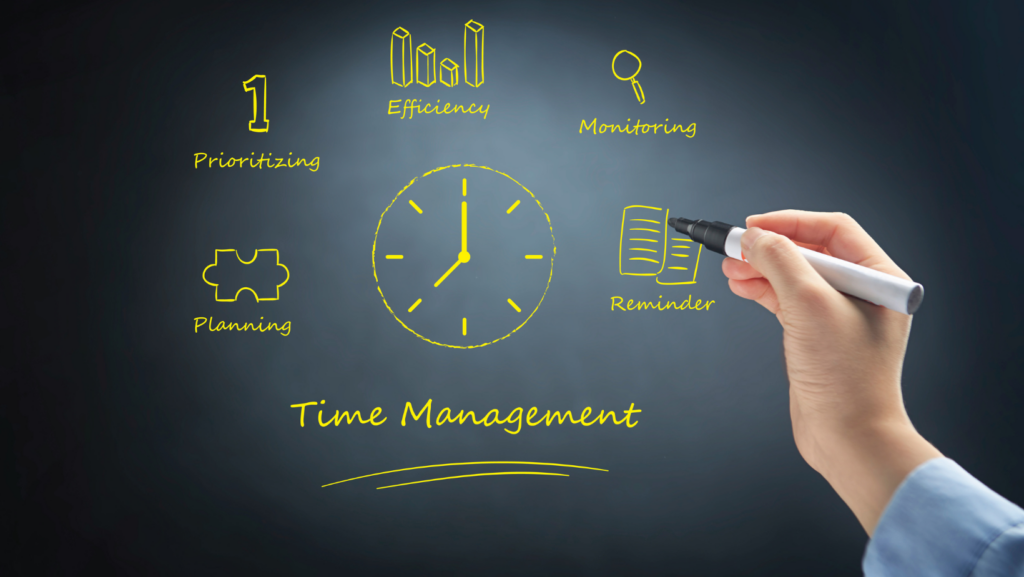Time management is an essential skill that can greatly impact both your professional and personal life. With effective time management, you can increase productivity, reduce stress, and create a balanced lifestyle. Here are some strategies to help you manage your time effectively, emphasizing the importance of selecting dependable services for your daily and business requirements.
Set Clear Goals
Setting clear and specific goals is the foundation of successful time management. In business, this might mean defining quarterly objectives or project milestones. In your personal life, it could involve planning fitness goals or family activities. When your goals are clear, it’s easier to prioritize tasks and allocate time appropriately.
Prioritize Tasks
Not all tasks are created equal. Use the Eisenhower Matrix to classify tasks into four distinct quadrants:
- Urgent and important: Tasks that need immediate attention.
- Important but not urgent: Tasks that are significant but can be scheduled for later.
- Urgent but not important: Tasks that require quick action but are not critical.
- Neither urgent nor important: Tasks that are trivial and can be delegated or eliminated.
By prioritizing tasks, you ensure that you’re focusing on what truly matters.
Create a Schedule
A well-organized schedule is essential for managing your time effectively. Utilize tools such as digital calendars, planners, or time management apps to structure your day.

Assign specific time slots for various tasks and adhere to them consistently. For instance, assign morning hours to high-priority work tasks and set aside evenings for personal activities. Consistent scheduling fosters productive habits.
Choose Reliable Services
An often neglected aspect of time management is how reliable services can enhance your efficiency. In both personal and business settings, selecting dependable services can save you considerable time and minimize stress. For instance, utilizing a same day courier service for urgent deliveries ensures that important documents or packages reach their destination promptly, eliminating the need for follow-ups and reducing potential delays.
Similarly, subscribing to reliable household services such as grocery delivery or home cleaning can free up your personal time, allowing you to focus on more critical tasks or enjoy leisure activities without worrying about these chores. The peace of mind that comes from knowing that your needs are being handled efficiently can greatly enhance your overall productivity.
In the business world, relying on dependable IT support can be just as crucial. Cleveland IT services help local companies stay on top of system maintenance, troubleshoot issues quickly, and avoid costly downtime. Having such a responsive and knowledgeable IT team can give businesses the freedom to focus on operations without the constant worry of technical disruptions.
Break Down Projects
Large projects can often feel overwhelming and result in procrastination. By dividing them into smaller, more manageable tasks, they become less intimidating. Each small task represents a step towards the overall goal, offering a sense of achievement and helping to maintain motivation.
Avoid Multitasking
Although multitasking might appear to boost efficiency, it typically results in lower productivity and more mistakes. Focus on finishing one task before starting the next. This approach enhances the quality of your work and reduces the time required to correct mistakes.
Use Time Management Tools
Many tools are available to help with time management. Apps like Trello, Asana, and Todoist help you organize tasks and projects, while tools like RescueTime track how you spend your time on digital devices. Utilizing these tools can provide insights into your work habits and help you make necessary adjustments.
Delegate When Possible
In both business and personal life, it’s important to recognize that you can’t do everything yourself.

Delegating tasks to others can free up your time for more critical activities. In a business context, this might mean assigning tasks to team members. In your personal life, it could involve sharing household chores with family members.
Learn to Say No
Overcommitting is a frequent time management challenge. It’s essential to learn to decline additional tasks or obligations that don’t align with your goals. Politely declining allows you to focus on what’s most important and prevents burnout.
Practice Time Blocking
Time blocking involves dedicating specific blocks of time to different tasks or activities. For example, you might block off two hours in the morning for focused work, an hour for meetings, and another hour for personal errands. This technique helps in creating a structured routine and ensures that each area of your life gets the attention it needs.
Limit Distractions
Distractions can greatly impact productivity. Recognize common distractions in your environment and take measures to reduce them. This could involve disabling phone notifications, establishing a quiet workspace, or scheduling specific times to check emails and social media.
Take Regular Breaks
Taking regular breaks is crucial for sustaining productivity and avoiding burnout. Implementing methods such as the Pomodoro Technique, which entails working for 25 minutes and then taking a 5-minute break, can be highly effective. These brief intervals help rejuvenate your mind, enhancing focus when you resume work.
Reflect and Adjust
Consistent reflection on your time management can yield valuable insights. At the end of each week, evaluate what went well and what didn’t. Adjust your strategies as needed to continuously enhance your time management skills.
Conclusion
Effective time management is crucial for achieving success and maintaining a balanced life. By setting clear goals, prioritizing tasks, creating a schedule, and using time management tools, you can boost productivity and reduce stress. Remember to select reliable services, delegate tasks, limit distractions, take regular breaks, and reflect on your progress. With these strategies, you can support your time management in both your business and personal life, leading to a more organized and fulfilling lifestyle.



